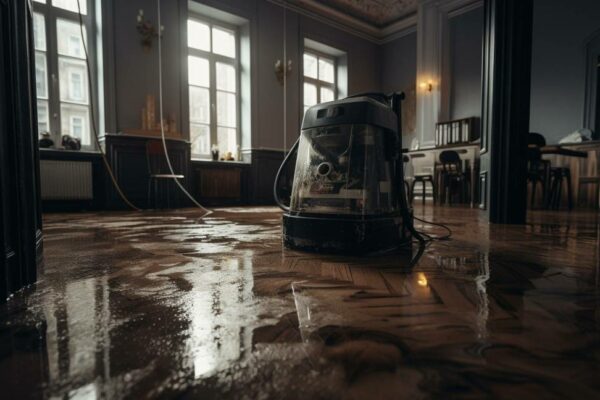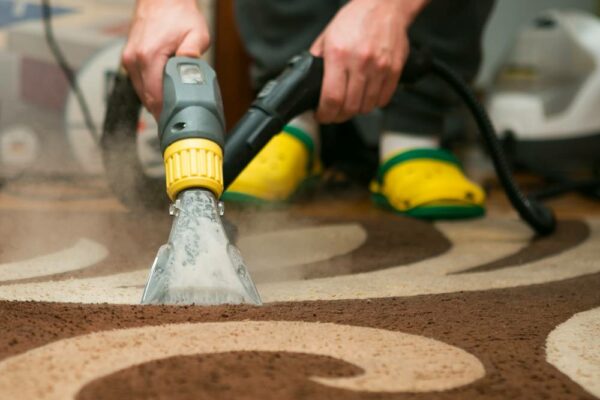How Long Would a Carpet Take to Dry?
October 19, 2023
When it comes to cleaning carpets, one of the most common questions that people have is how long it would take for the carpet to dry.
After all, a wet carpet can be a major inconvenience and can also lead to potential problems such as mould growth or damage to the flooring underneath.
The time it takes for a carpet to dry can vary depending on several factors. Let’s take a look at these factors and how they can influence carpet drying time.
Why a Wet Carpet Can Be Dangerous
Before we dive into the factors that influence drying time, it’s important to understand why a wet carpet can be dangerous in the first place – hence, why carpet drying is crucial.
1) Mould Growth: As mentioned earlier, a wet carpet can be a breeding ground for mould and mildew. This is especially troublesome for individuals with respiratory issues as it can worsen their symptoms.
2) Damage to the Flooring: If your carpet stays wet for an extended period of time, it can cause damage to the flooring underneath. This is particularly true for wooden floors, which can warp or rot when exposed to moisture for long periods.
3) Unpleasant Odours: A wet carpet can also lead to unpleasant odours and make your home smell musty.
Factors That Influence Drying Time
Now, let’s take a look at the factors that can influence how long it takes for a carpet to dry:
1) Type of Carpet
The type of carpet you have plays a significant role in determining how long it will take to dry. For instance, carpets made from natural materials such as wool or cotton tend to absorb more water and, therefore, take longer to dry. On the other hand, carpets made from synthetic materials like nylon or polyester have a lower water absorption rate and may dry faster.
2) Humidity
Humidity levels in the environment also play a key role in how long it takes for a carpet to dry. In high humidity conditions, such as during rainy weather, the air already has a high moisture content, which can slow down the evaporation process. This means that your carpet will take longer to dry. On the other hand, low humidity levels can help speed up the drying process as it allows for faster evaporation.
3) Airflow and Ventilation
Proper airflow and ventilation are essential for a carpet to dry quickly. When carpets are left in an enclosed space with no air circulation, the moisture from the carpet has nowhere to go and can prolong the drying process. On the other hand, good airflow and ventilation help to expedite the evaporation process, allowing for a faster drying time.
4) Method of Cleaning
The method used to clean your carpet can also affect how long it takes for it to dry. Here is a brief breakdown of how each cleaning method can impact the drying time:
- Steam Cleaning: This method involves using hot water and cleaning solutions to clean carpets. It is an effective way to remove deep-seated dirt, but it can take up to 24 hours for the carpet to dry completely.
- Bonnet Cleaning: This method uses a rotary machine with absorbent pads to clean the carpet’s surface. The carpets dry much faster with this method, usually within 2-3 hours.
- Dry Cleaning: As the name suggests, this method uses very little water and relies on chemical solvents instead. This results in a shorter drying time of 2-3 hours.
- Shampoo Cleaning: This method uses a foamy shampoo solution to clean carpets, which can take several hours to dry.
5) Room Temperature
The temperature of the room also plays a role in how long it takes for a carpet to dry. In warmer temperatures, water will evaporate faster, and the carpet will dry more quickly. On the other hand, colder temperatures can slow down the evaporation process and prolong drying time.
6) Carpet Condition
The condition of your carpet can also influence the time it takes for it to dry. An older or worn-out carpet may have more wear and tear, which can allow water to seep deep into the fibres. This means that it will take longer for the water to evaporate completely. Regularly maintaining and cleaning your carpet can help keep it in good condition and reduce drying time.
How to Speed Up the Drying Process
Now that we have discussed the factors that can affect how long it takes for a carpet to dry, here are some tips on how you can speed up the process:
- Use fans or open windows to increase airflow and ventilation in the room.
- Place towels or absorbent materials over wet spots to soak up excess water.
- Turn on your heating system to help increase the room’s temperature.
- Consider using a dehumidifier to reduce humidity levels in the room.
Flood Response: Professional Carpet Drying Experts
In case of a flood or major water damage, it’s best to seek help from professional carpet drying experts. They have the necessary equipment and expertise to quickly dry and restore your carpets, preventing any potential damage. Additionally, they can also provide tips on how to prevent future water damage and maintain a healthy indoor environment.
At Flood Response, we have over 30 years of combined experience in restoration and cleaning. After dealing with thousands of unique events, not only can we speak for ourselves, but our work and past clients do, too.
If you encounter any water damage or need professional carpet drying services, don’t hesitate to contact us for prompt and efficient assistance.
Conclusion
Several factors can influence how long it takes for a carpet to dry, including the type of carpet, humidity levels, airflow and ventilation, cleaning method, room temperature and the condition of your carpet. By understanding these factors and taking necessary precautions and measures, you can help speed up the drying process and prevent any potential damage to your carpets.
In case of a major event, reach out to Flood Response for efficient and effective restoration services. Remember, taking care of your carpets not only helps maintain their appearance but also ensures a healthy indoor environment for you and your loved ones.
Other news

How To Extract Water from Carpet
December 22, 2023
Water getting into your home can happen in different ways – floods, spills, or leaks are the usual suspects. Floods can soak carpets in water really quickly; spills are mostly accidental and con...
Read the article
How Long Does It Take to Repair After a Flood?
November 21, 2023
Floods are one of the most devastating natural disasters that can affect a community. They can cause significant damage to homes, businesses, and infrastructure, leaving people displaced and strugglin...
Read the articleIs Water Damage Repairable?
August 22, 2023
Whether through a flood, a leaking pipe, or even heavy rainfall, water can infiltrate your home and wreak havoc. But is water damage repairable? Or, with the right approach, can the devastating effect...
Read the article